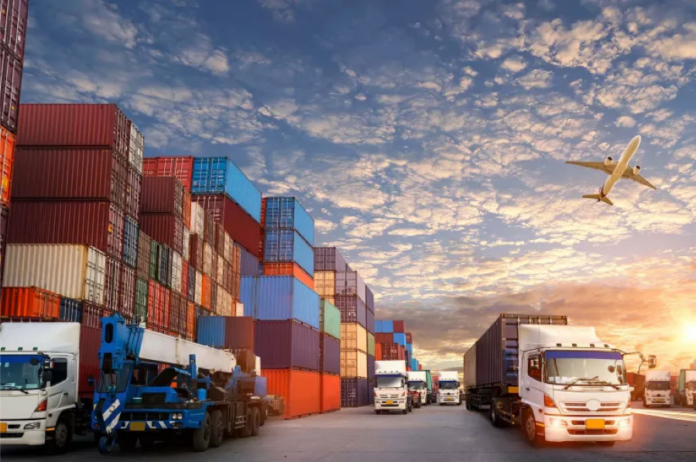A recent study by Oriekhoe, et al., (2024) titled “Review of Technological Advancements in Food Supply Chain Management: A Comparative Study Between the US and Africa” published in International Journal of Management & Entrepreneurship Research, examines that the U.S. has a sophisticated food supply chain with advanced technologies like blockchain, IoT, and AI to enhance transparency and efficiency.
“
U.S. employs advanced technologies, Africa innovates with context-specific solutions in food supply chains.-Oriekhoe, et al., 2024
The article comprehensively reviews technological advancements in food supply chain management, comparing the approaches between the United States and Africa. The study examines how the U.S., as a developed nation, integrates advanced technologies like blockchain, IoT, and AI to enhance transparency, traceability, and efficiency in its food supply chain. The authors highlight the unique challenges faced by Africa, such as infrastructural constraints and diverse agricultural practices, and how the continent leverages technology like mobile platforms and data analytics to overcome these issues. By comparing the technological landscapes of the U.S. and Africa, the study identifies common trends, best practices, and region-specific innovations that contribute to a holistic understanding of global and regional food supply chains.
How the Study was Conducted
The authors employed a comparative analysis of technological advancements in food supply chain management between the U.S. and Africa. The study also examines how each region adopts technology to address challenges like demand volatility, perishability, and the need for efficient practices. The study contrasts the U.S.’s sophisticated supply chain with Africa’s unique challenges and innovations, such as mobile-based platforms and blockchain for transparent transactions.
What the Authors Found
The authors found that the U.S. has a sophisticated food supply chain with advanced technologies like blockchain, IoT, and AI to enhance transparency and efficiency. Africa, while facing infrastructural challenges, is innovating with mobile-based platforms and data analytics for smallholder farmers. The authors also found that both regions exhibit common trends in technology adoption, with region-specific innovations. The study provides insights for policymakers and industry stakeholders, promoting cross-cultural learning and collaborative efforts.
Why is this Important
Global Food Security: Understanding how technology impacts food supply chains is crucial for ensuring global food security. Efficient supply chains help prevent food waste, improve distribution, and stabilize prices.
Sustainable Practices: By comparing the U.S. and Africa, policymakers can identify sustainable practices that benefit both developed and developing regions. Innovations like blockchain and mobile platforms can enhance transparency and accountability.
Inclusive Solutions: Recognizing Africa’s unique challenges highlights the need for inclusive solutions. Technology can empower smallholder farmers and bridge gaps in infrastructure, promoting economic growth and reducing hunger.
Collaboration and Learning: Cross-cultural learning and collaboration between regions can lead to better practices. Sharing insights and best practices can drive positive change in food supply chains worldwide.
What the Authors Recommend
- The authors suggested that policymakers and industry stakeholders should invest in technology adoption across the food supply chain. This includes implementing blockchain, IoT, and AI solutions to enhance transparency, traceability, and efficiency.
- The authors argue that recognizing each region has unique challenges. In Africa, where infrastructural constraints exist, focus on context-specific innovations like mobile-based platforms that can empower smallholder farmers.
- Furthermore, the authors advocate on fostering cross-cultural learning and collaboration between the U.S. and Africa. Sharing best practices and insights can lead to better supply chain management globally.
- Also, the study argues that policy makers should encourage sustainable practices that reduce food waste, improve distribution, and stabilize prices. Technology can play a key role in achieving these goals.
In conclusion, the comparative study by Oriekhoe et al. (2024) underscores the pivotal role of technological advancements in transforming food supply chain management in both the U.S. and Africa. While the U.S. leverages sophisticated technologies like blockchain, IoT, and AI to enhance transparency and efficiency, Africa is making significant strides with mobile-based platforms and data analytics tailored to its unique challenges. This study highlights the importance of understanding regional specificities and fostering cross-cultural collaboration to drive innovation and sustainable practices in global food supply chains. Policymakers and industry stakeholders are encouraged to invest in technology adoption and share best practices to enhance food security, promote economic growth, and reduce hunger worldwide.
















 The African Research (AR) Index is a comprehensive scholarly directory and database focused explicitly on journal publishers that publish and disseminate African research.
The African Research (AR) Index is a comprehensive scholarly directory and database focused explicitly on journal publishers that publish and disseminate African research.

